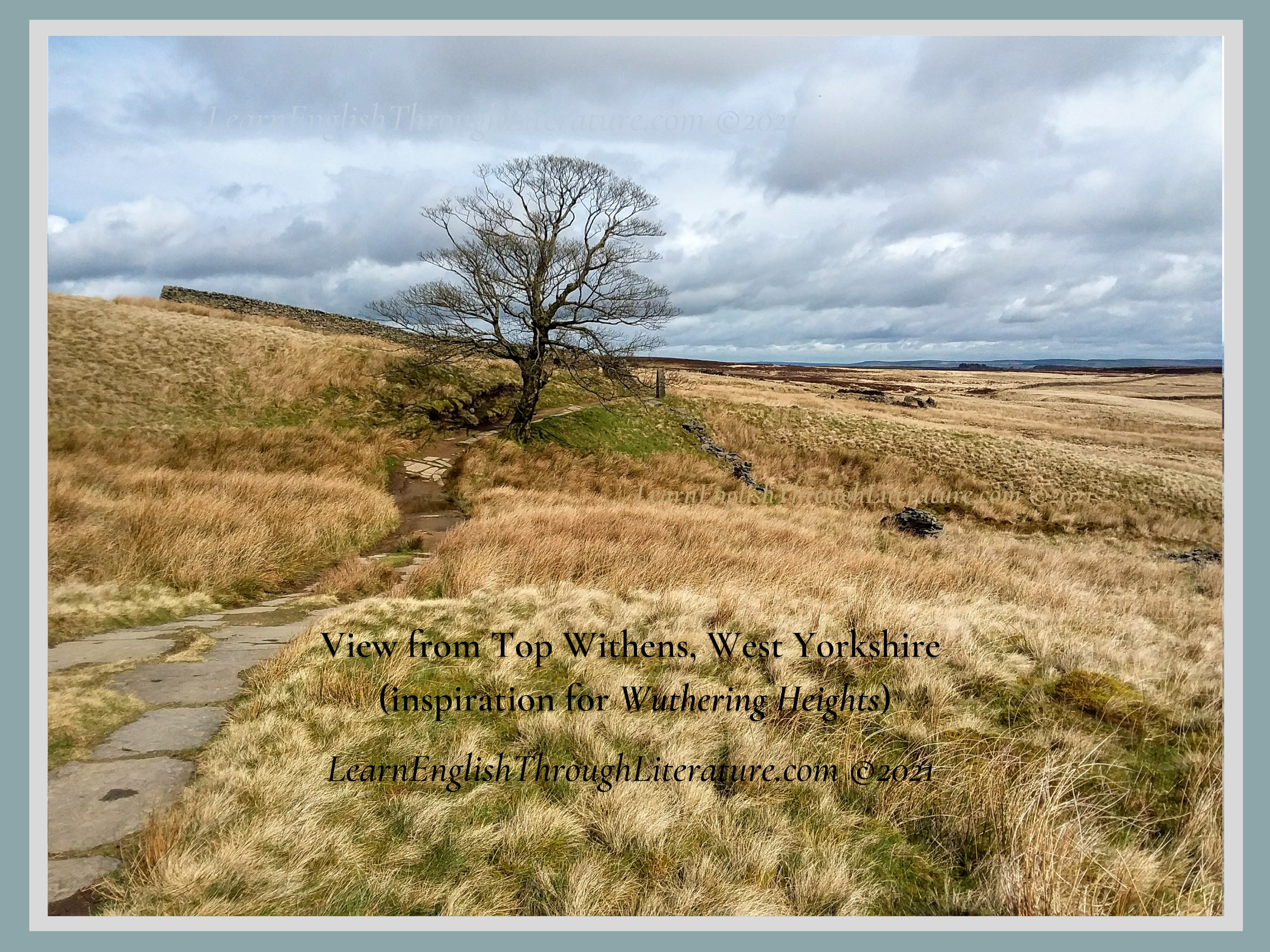📗 ‘I cannot express it; but surely you and everybody have a notion that there is or should be an existence of yours beyond you. What were the use of my creation, if I were entirely contained here? My great miseries in this world have been Heathcliff’s miseries, and I watched and felt each from the beginning: my great thought in living is himself. If all else perished, and he remained, I should still continue to be; and if all else remained, and he were annihilated, the universe would turn to a mighty stranger: I should not seem a part of it. My love for Linton is like the foliage in the woods: time will change it, I’m well aware, as winter changes the trees. My love for Heathcliff resembles the eternal rocks beneath: a source of little visible delight, but necessary. Nelly, I am Heathcliff! He’s always, always in my mind: not as a pleasure, any more than I am always a pleasure to myself, but as my own being.’
- Emily Brontë, Wuthering Heights (1847)
…
Emily Bronte’s classic Wuthering Heights is full of dramatic and truly memorable language. As such, some people would assume that we wouldn’t use its kind of language in our everyday conversations. But the fact is that, in many ways, we already do!
Consider what are the emotions that are expressed in the paragraph above. What are they? They include emotions of desire, hope, despair, wishful thinking, not to mention urgent pleading.
🖋️ These expressions rely on two tenses in particular to make sense: the conditional and the subjunctive. Both these tenses are often found in expressions of ‘if … then …’
Here is a brief overview of the two tenses, with explanations, examples, and suggestions to help you use them more in your speaking or writing.
…
THE CONDITIONAL TENSE:
✍️ The conditional tense speculates about what could be or could happen, what might be or might happen, what we wish would be or would happen in certain circumstances. It is used in sentences beginning with the conjunction ‘if‘, and modifies another verb that is usually conjugated in the past tense.
To draw on Emily Bronte’s magnificent lines* (with my own emphases inserted):
📗 ‘If [conjunction] all else perished [past tense], and he remained [past tense], I should still continue [conditional tense] to be; and if all else remained [past tense], and he were annihilated [past subjunctive], the universe would turn [conditional tense] to a mighty stranger: I should[conditional] not seem a part of it.’
– Emily Bronte, Wuthering Heights
…
THE [PAST] SUBJUNCTIVE TENSE:
In Bronte’s line just quoted, we saw an example of the past subjunctive in action (common in subordinate clauses, since it describes improbable situations). ✍️ The subjunctive tense (or mood as it is more correctly known as) describes situations that are hypothetical (not real, just supposed or proposed) and are fully dependent on another factor (subject, activity, or situation) for it to be realised or fulfilled.
✏️ Here are the basic conjugations of the subjunctive present and subjunctive past of ‘to be’, which are preceded by ‘that’ or ‘if’ (thus differentiating the first, second, and third persons plural in the past subjunctive from the common present or past conjugations of the same verb):
SUBJUNCTIVE PRESENT:
- [that/if] I be
- [that/if] you (singular) be
- [that/if] he/she be
- [that/if] we be
- [that/if] you (plural) be
- [that/if] they be
SUBJUNCTIVE PAST:
- [that/if] I were
- [that/if] you (singular) were
- [that/if] he/she were
- [that/if] we were
- [that/if] you (plural) were
- [that/if] they were
In light of the above, consider this line from the same cited paragraph of Wuthering Heights:
📗 ‘What were the use of my creation, if I were entirely contained here?’
– Emily Bronte, Wuthering Heights
If the quotation above were in the conditional, it would read as follows:
✏️ What would be the use of my creation, if I would be entirely contained here?
– (Paraphrased – also sounding unnatural, since what it describes is by its essence an unattainable state – it is not possible for Catherine, the speaker, to ‘be entirely contained here’ and never die – and so this expression requires the subjunctive.)
…
THE DIFFERENCE BETWEEN THE CONDITIONAL AND SUBJUNCTIVE TENSES:
📝 To recap: the conditional tense describes something that, while it has not yet happened, has the possibility of becoming a reality when circumstances change. On the other hand, the subjunctive mood describes situations that are uncertain, unreal, or merely a wish; it can also express importance or urgency.
How will you use these tenses in your own English expressions? What expectations do you have if/when some circumstances in your life change? What wishes would you dream of fulfilling?
As this lesson has shown, English has two tenses that will lend themselves perfectly to all your expressions of ‘if … then …’
…
* It is worth mentioning that Emily Bronte’s sister Charlotte also frequently used the conditional and subjunctive tenses in her own writing.




